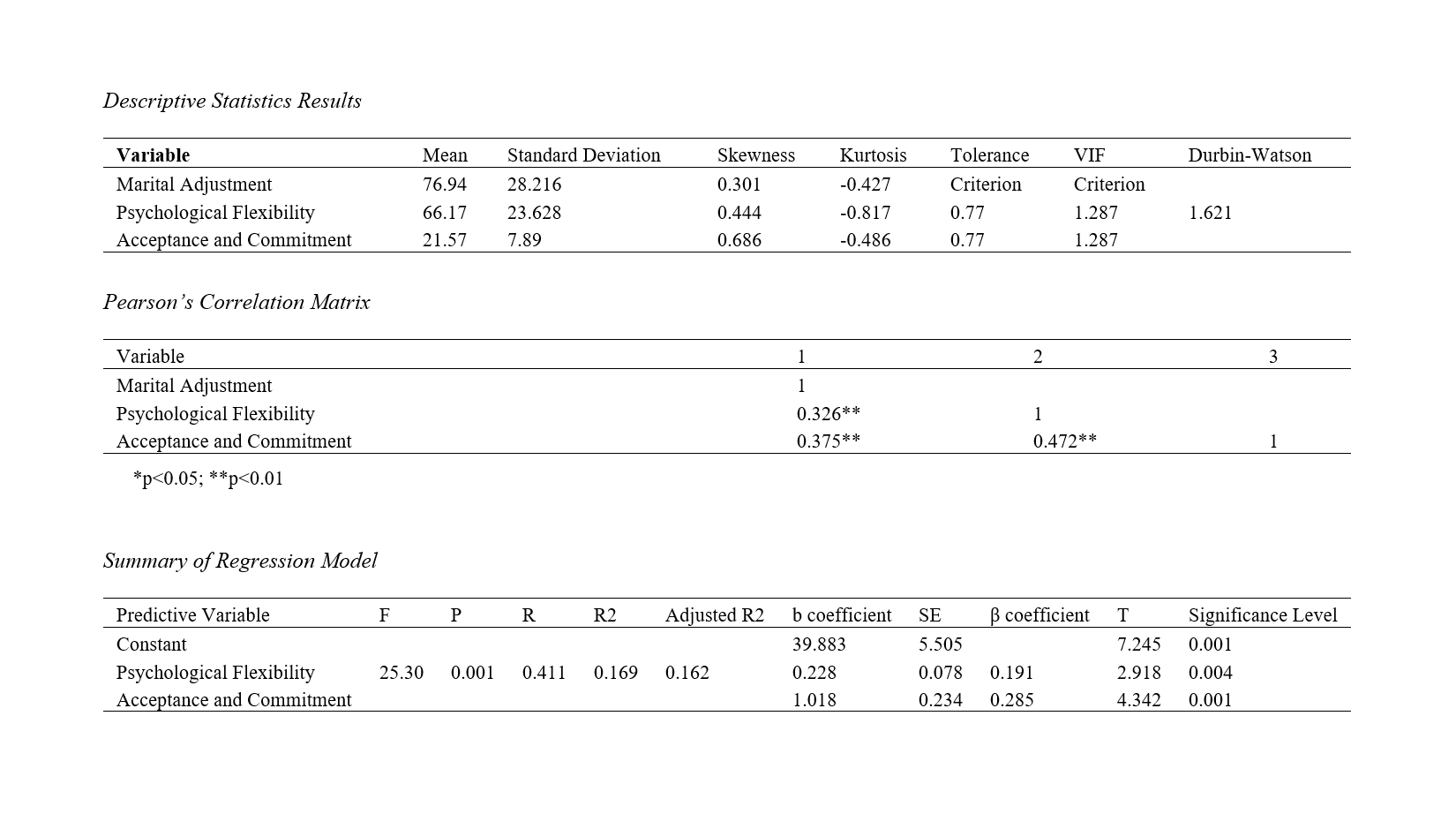The Role of Psychological Flexibility, Acceptance, and Commitment in Marital Adjustment Among Couples
Keywords:
Psychological Flexibility, Acceptance and Commitment, Marital Adjustment Among CouplesAbstract
Objective: The present study aimed to determine the role of psychological flexibility, acceptance, and commitment in marital adjustment among couples.
Method: This study was applied and descriptive-correlational in nature. The population included couples (both women and men) from Amol County, who were studied using a convenience sampling method involving 126 couples. Data were collected using the Cognitive Flexibility Inventory by Dennis and Vander Wal (2010), the second version of the Acceptance and Action Questionnaire by Bond et al. (2007), and the Spanier Dyadic Adjustment Scale (1976). For the analysis of data in the inferential statistics section, simultaneous multiple regression was conducted using SPSS version 21.
Findings: The findings indicate that psychological flexibility, acceptance, and commitment can explain 16.9% of the variance in marital adjustment. The t-tests for significance in regression for the coefficient of psychological flexibility (β = 0.191) and acceptance and commitment (β = 0.285) were significant. Acceptance and commitment have a greater unique contribution in predicting marital adjustment among couples (α = 0.05).
Conclusion: According to the results, the most significant influences on marital adjustment are acceptance and commitment, followed by psychological flexibility. It is recommended that the findings of this research be utilized to enhance marital adjustment among both women and men.
Downloads

Downloads
Additional Files
Published
Issue
Section
License

This work is licensed under a Creative Commons Attribution-NonCommercial 4.0 International License.





















